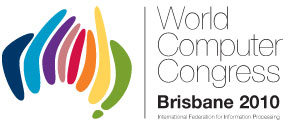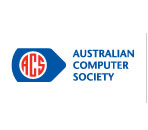![]()
Treat IT is engaging in the global health IT transformation.
Associated Conferences
Industry Speakers
Abstracts and biographies
The Australian Government in agreement with the states and territories (except Western Australia) are undergoing significant reform in the way health services are to be delivered. Unless health providers, health managers and all levels of government have access to the right information at the right place at the right time, these reforms will struggle to deliver better services and meet rising costs.
Judy Anderson represents IBM Australia at the highest levels in Canberra on policy issues, with a focus on health. In her role she has brought together a range of industry and business representatives to help position ehealth as a key foundation for health reform. Judy's background includes policy development in ICT, Government reform and was also a health practitioner. She has also lectured at the Australian National University in the area of ICT public policy and has a Master of Finance and a Bachelor of Economics, and Certificate of Nursing.
The RFDS is at the forefront of advances in technology, incorporating it more and more into its everyday range of services. Technology provides the greatest opportunities for improving patient care, and responding to patient needs. It also provides the greatest opportunities to contain the rate of growth in the costs of delivering health services. However, the challenges exist in both connectivity, or lack of it in remote areas, and the challenges of sharing patient information amongst clinicians and other providers in a coordinated and collaborative way. Technology is only one half of the challenge, clinicians also need to embrace technology and the changes it brings in the way they manage patients, and the way they share patient information.
Nino Di Marco was appointed CEO to the RFDS (Qld Section) in April 2006, and is responsible for the strategic direction of the organisation in the provision of aeromedical and primary health care services by over 350 staff throughout Qld. Nino has over 20 years experience in leadership and management, with extensive experience in managing change within a rapidly evolving environment. Since joining the RFDS, Nino has overseen a rapid growth in the RFDS through its expansion of primary health care services and interhospital transport services. A major part of his focus is in moving the organisation forward as a modern, commercial not for profit organisation. As part of his role within the RFDS, he also sits on the National Executive of the RFDS National Organisation. He holds an Economics degree from the University of New England, and a post graduate diploma in finance & Investment. He is also a Fellow of the Aust Institute of Management, and a member of the Australian Institute of Company Directors.
Healthcare systems all over the world are in a mess and governments seem powerless to fix the problem. No matter how much funding is thrown at the healthcare machine the entire system remains inefficient, expensive and unreliable. Our healthcare systems are killing people and we seem powerless to fix it despite all the goodwill and funding our governments can muster.
So why isn’t money fixing the problem? The reason for this is simple. Poor decision making and not underfunding is the cause of our healthcare issues. Mismanagement of beds, misdiagnosis of patients, ineffective use of assets, unnecessary rework, inefficient (and sometimes non-existent) processes, lack of communication between healthcare providers… the list goes on and on … all contribute to the mess we know as Healthcare. Spending money to make it bigger won’t fix it. We have to fix the system.
This presentation argues that Healthcare is an Information based business and many of the failings in Healthcare today are caused by the lack of information systems to support decision making in hospitals. All across the healthcare system we have people making life and death decisions without access to any information about their patients – information that exists but is simply not available when and where we need it. We have solved these problems in almost every other industry – what’s gone wrong with Healthcare?
This presentation uses simple scenarios to discuss ICT’s ten key contributions to reforming the Healthcare system. It also outlines the main reasons we have been wholly unsuccessful in fixing these issues so far.
ICT contribution to healthcare is critical. The life of one of your friends or family may one day depend on how well your healthcare system has leveraged ICT.
Peter's 30 year IT career highlights include Chief Information Officer for the Queensland Government, VP Consulting for Gartner, Founder of OZONE Systems – a technology start up company which he grew to 1200 clients world-wide, Head of the IT operations of two of Australia’s largest networks and Chief Information Officer at Queensland Health. Peter has also worked as an executive coach for many CIOs in the Private and Public Sector.
Peter holds a Bachelor of Business and a Research Masters Degree in Information Systems. He holds positions of Adjunct Professor in the School Information Technology and Electrical Engineering at the University of Queensland and in the Faculty of Science and Technology at Queensland University of Technology (QUT). Peter sits on several Faculty Advisory Boards at Universities in Queensland and interstate. Peter is a member of the Australian Institute of Company Directors and is a Fellow of the Australian Computer Society.
As members of the research community we are all too often satisfied with simply publishing the results of our research, believing that it is up to others to take the step of translating our work into “real world” outcomes. In areas such as eHealth, where research activities can rapidly make real differences in the quality, service, delivery and efficiency of healthcare outcomes, and especially where funding comes from the public purse, there is a strong argument for researchers to plan for uptake of research outcomes. This paper examines how the Australian eHealth Research Centre, a joint venture between CSIRO and the Queensland Government, structures its activities to ensure as smooth as possible a transition from research activity to health system adoption.
Dr. Phil Gurney is CEO, Australian E-Health Research Centre. He has more than 15 years experience in commercial and R&D management. Dr Gurney's career spans the e-health, biomedical, telecoms, IT, defence and consultancy sectors, with the common theme being identifying and obtaining the best outcomes from R&D projects. Prior to joining the Australian eHealth Research Centre in 2009, Dr Gurney has held a number of senior positions in international organisations. He was a founder, and Managing Director, of telecoms network design company VPIsystems, and managed the expansion of the company from Australia to US, Europe and Asia. Dr Gurney's career started in the UK, where he worked for GEC Avionics before coming to Australia to join the Australian Photonics CRC. He has worked with a range of organisations including CSIRO and DSTO, and has consulted on growth strategies for SMEs and not-for-profit organisations. He has held board positions with US and Australian organisations.
Implementation of eHealth programs promises improvements to the Health System through better sharing of patient information, quicker turnaround of results and the support of more efficient processes. But can the Health System benefit from these technologies, and how should they be implemented?
To be provided.
Adam Powick is the national leader of Deloitte's technology consulting practice and has over 20 years IT consulting experience in Australia, the U.S. and Asia. Adam was the lead author of the Australian National eHealth Strategy which was endorsed by health ministers in December 2008. Adam is widely recognised as one of the leading authorities on the Australian eHealth agenda and is currently providing strategic eHealth advice to a range of public and private health sector organisations across Australia.
With pressure from government and society, healthcare organizations are struggling more and more with delivering better quality of care and services to patients, and saving costs at the same time.
New healthcare information systems, like the Electronic Patient Records (EPR) systems, are being implemented to be able to improve quality while being more efficient. Extensive training on these applications is costly and time-consuming; time that healthcare personnel should rather spend on delivering quality care. With Performance Support healthcare organizations can reach cost saving benefits on implementation, training and daily use of EPR and other (healthcare) systems.
Research suggests that up to 80 percent of learning in the workplace occurs on an informal basis. Even with this being the case, most organizations spend more than 80 percent of their training budget and effort on formal training. This presentation will address the issues and methodologies surrounding understanding and effectively delivering informal learning, with a focus on the largest growth area, Performance Support. See how some emerging and non-traditional methods are stepping up to fill this much needed training opportunity. In this presentation you will also learn about the implementation of Performance Support within several large hospitals and a pharmaceutical company.
Alfred Remmits co-founded LearningGuide Solutions and is recognized internationally for his views on informal learning. Alfred is a regular speaker at learning events and an evangelist for improving organizational performance through better informal learning.
Alfred Remmits spent five years on the Board of Directors of the Dutch Association for IT training companies (VOI) and also served on the Worldwide Board of Directors of CompTia's Information Technology Training Association representing the European IT training industry. Alfred finally served on Microsoft’s Global Learning Advisory Board between 2004 and 2006.
Alfred has a degree in Social Science from the University of Amsterdam and lives in the Netherlands.
Currently eHealth is a fairly hot topic within the Australian Health reform program. In an effort to replace the paper medical record and improve processes, many major health institutions have or are implementing Electronic Medical Records systems. These are proving to enhance services within organisations, but as a patient's health care needs often do not start or stop once having left a hospital, how does eHealth ensure the continuity of services between the multiple providers and the consumer. Based on his experience as both an IT health professional and a consumer, Bill Vargas will discuss the current technology, infrastructure needed and governance required for a person centred eHealth system which will cross health organisational boundaries and services. He will also talk about the needs of providers and consumers, including their security and privacy concerns.
Bill Vargas has over 25 years experience in IM & T within the Health environment. During this time he has been involved in multiple key systems implementations involving both corporate and clinical systems both at Children’s Hospital at Westmead (CHW) and at a NSW Health level. He leads the IM & T team at CHW, which has been recognised as a leading organisation in the use IT within a Health environment. In 2005 the Children’s Hospital was awarded the iAward for innovative development in Health Care, by Australian Information Industry Association (AIIA) and conjunction with CSIRO ICT centre.
Some of the key achievements by the CHW team have been of totally paperless systems within key clinical environments, such as Critical Care (Eclipsys) and the Emergency department (Health-e-Care, locally developed system). CHW is working to finalise implementation a full Electronic Medical Record (EMR- Cerner), which has been integrated to both the digitally scanned medical records and medical imaging. Bill has also been involved in many State initiatives such as the pilot of the NSW Health Electronic Health Record (EHR), NSW Health Identity management/ active directory implementation and state-wide infrastructure. CHW has partnered with industry partners to pilot IT initiatives such as a wireless implementation within a health setting, utilising the EMR systems and new wireless communication technology (Vocera/Cisco), Managed Print Services with Lexmark. The findings of these pilots have been made public.
























